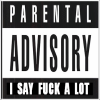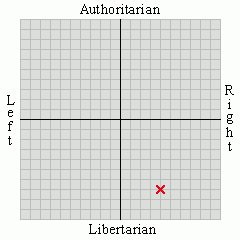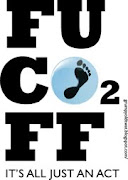An attempt to insert a defence of "free speech" into a bill designed to criminalise incitement to hatred over sexual orientation has failed.In fact I'd say we're beyond the point of nailing the coffin lid down and well into the process of piling shovelfuls of dirt on top. "I disagree with what you say but I defend to the death your right to say it" - has that been forgotten? I kind of sympathize with the intent and I'm not going all Daily Wail and saying it's political correctness gone mad. But it is political correctness gone sinister - though I have no idea if I can say sinister without someone saying it's hate speech against left handers. Mainly however it's just going to make Britain a slightly nastier place, which is pretty much the opposite of what the PC lot who voted for it intend.
Campaigners had said the Coroners and Justice Bill would limit expression - some comedians claimed the proposals could leave them open to prosecution.
But ministers said the "free speech proviso" would have provided a loophole for those wishing to incite hatred.
The first problem is that you can't use the law to make bigoted arseholes be nice open minded people all of a sudden. Orwell's fear was of a society that tried to control thoughts by controlling language, but I doubt it would work quite that way. At best the bigoted arseholes would be unable to put a name to the object of their dislike, but it wouldn't change the feeling. Say you've got an unreasonable dislike of, and to avoid offending anyone I'll use a ridiculous example, people who wear checkered shirts, and that you and your friends call them 'checkies'. You think they're thick and untrustworthy, and by extension you also brand anyone else who is thick and untrustworthy a "checkie" even if they don't wear checkered shirts. I can ban the word all I want but you'll still have your silly prejudice, and since language evolves you'll find a new word to use as a term of abuse. Or you'll simply call them cunts instead of using something specific for check shirt wearers. Much of a step forward? I don't think so.
The other problem is that by favouring one or more groups you risk creating sympathy for the bigots. Remember the BNP's Nick Griffin in the 2001 election standing on the platform with a gag on his mouth? I have no love for him or his party and I dislike their policies, particularly on immigration (being a migrant myself I would), but even I found that a sympathetic image. BZZZZ - own goal. On top of that it was newsworthy so it created extra coverage of the BNP. BZZZZZ - another own goal. That's a step backwards.
The third problem is where to draw the line. What remains acceptable and what is taboo? And how to you keep up with current slang and usages? As I said, language evolves. I can't recall where I read it but I saw an article where the writer was talking about their child referring to someone at school as 'special'. To begin with the writer thought it was complimentary but eventually realized that it mean 'special needs'. The PC term had led to a term no better than kids of the 70s and 80s calling each other spastic and mong. Equally some offensive terms will weaken and become sufficiently tame that there's no justification to include them as 'hate speech'. The definition of what's taboo will be constantly moving, or at least will need to be, depending on who gets offended by what words.
And therein lies another problem. Who decides all this stuff? Who decides that, to use my earlier example, "checkie" is offensive enough to be "hate speech" but that I might have to put up with "baldy" or "slap-head"? Or pom? And think of the tone of voice or using adjectives. The word 'doctor' seems pretty innocent but stick the word 'fucking' on the front and/or spit as if you were saying nazi and the result can express a hatred of doctors very well. Going to ban that? What about words with multiple meanings? Since the story was specifically about homophobic terms let's consider the word 'gay'. Here's dictionary.com:
gay adjective, -er, -est, noun, adverbSo three defintions that certainly relate to homosexuality, four that don't and one that could go either way (so to speak). We could do the same for 'fairy' (also a brand name of course). So where does that leave the law? It's not what you say but the way you say it? Fucking hell, but that's pretty subjective for anything that you're going to make a crime of.
–adjective
1. having or showing a merry, lively mood: gay spirits; gay music.
2. bright or showy: gay colors; gay ornaments.
3. given to or abounding in social or other pleasures: a gay social season.
4. licentious; dissipated; wanton: The baron is a gay old rogue with an eye for the ladies.
5. homosexual.
6. of, indicating, or supporting homosexual interests or issues: a gay organization.
–noun
7. a homosexual person, esp. a male.
–adverb
8. in a gay manner.
I feel that there's really only one solution and that is to recognize that you can't legislate for this sort of thing. There is no right to go through life without being offended, and it would be impossible to create. Since it would inevitably restrict speech I would be offended by such a law, which means that the law would break itself. I get regularly offended by all sorts of things politicians say because it's so often bullshit, patronizing nonsense, wrong or all of the above. And how often do I get called a pom, another term that can be meant as offensive or affectionately depending on context. I've heard the former just once several years ago, and even that wasn't directed at me. The rest of the time it's always been light hearted. But even if I was thin skinned and did take offence where none is meant does that mean my right not to be offended trumps the rights of millions of Aussies who use the term? Obviously not.
Okay, how about words that have only one meaning and are always and unambiguously meant offensively? Well, much as we might rather have a society where they're not used and people don't feel that way you're effectively attempting to regulate people's thoughts, feelings and opinions. There is already a name for this, a name that's been around since the late 1940s. The name is this:
Thoughtcrime.
We must realize that free speech is an absolute. It is free or it is not. It is regulated and restricted or it is free. If one word, just one out of the at least half a million in the language, becomes impermissible by law then freedom of speech dies. Even the existence of the law with no actual proscribed words kills free speech because the entire language is usable only at the whim of government. I don't like hearing so-called hate speech, but I like the removal or even potential removal of the right to say it even less. Thoughtcrime or free speech are the options. The UK has chosen thoughtcrime.


















